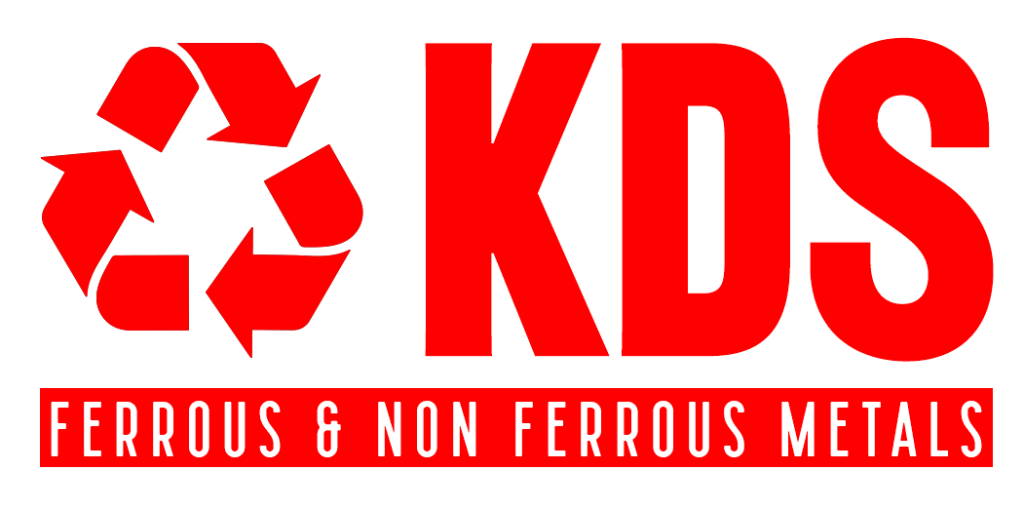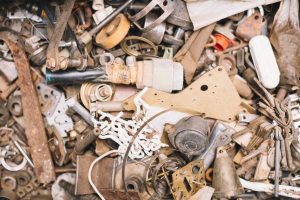The Environmental Impact of Scrap Metal Recycling in the UK
In a world increasingly focused on sustainability, the role of scrap metal recycling in the UK cannot be overstated. As we explore the intricate web of environmental benefits tied to this practice, we delve into how it contributes to sustainability efforts, reduces the environmental impact of metal extraction, and paves the way for a greener, more responsible future.
Understanding the Basics: What is Scrap Metal Recycling?
At its core, scrap metal recycling involves collecting, processing, and reusing discarded metal items, diverting them from landfills and incinerators. This process conserves valuable resources and significantly lessens the environmental footprint associated with traditional metal extraction methods.
The Environmental Toll of Traditional Metal Extraction
Metal extraction from raw ores is a resource-intensive process often involving extensive energy consumption and environmental degradation. From deforestation to soil erosion, the impact is substantial. By opting for scrap metal recycling, we directly address these issues and contribute to a more sustainable approach to resource utilisation.
Reducing Energy Consumption: A Key Advantage of Scrap Metal Recycling
One of the primary environmental benefits of scrap metal recycling is the substantial reduction in energy consumption. Recycling requires significantly less energy than the energy-intensive process of extracting metals from raw materials. This conserves valuable resources and helps mitigate the environmental impact of burning fossil fuels for energy production.
Greenhouse Gas Emissions: A Win for the Atmosphere
Metal extraction processes often release large amounts of greenhouse gases into the atmosphere. On the other hand, scrap metal recycling results in considerably lower emissions. By diverting metal waste from landfills and adopting recycling practices, we reduce greenhouse gas emissions, aiding the global effort to combat climate change.
Local Impact: The Case of Scrap Metals in Burnley
In Burnley, the significance of scrap metal recycling takes on a local dimension. KD Scrap Metals, a leading player in the industry, plays a pivotal role in this context. Click on the link to explore how their services contribute to the local economy, job creation, and environmental sustainability.
Circular Economy in Action: The Scrap Metal Lifecycle
A key concept in sustainable practices is the circular economy; scrap metal recycling embodies this principle. The lifecycle of scrap metal, from collection to processing and reuse, minimises waste, conserves resources, and fosters a system where materials are continually cycled back into production, reducing the need for constant extraction.
Understanding the scrap metal lifecycle is key to grasping its environmental impact’s full scope and role in creating a more sustainable future. This cycle, comprising collection, processing, and reuse, minimises waste, conserves valuable resources, reduces energy consumption, and promotes a circular economy.
1. Collection: Rescuing Metals from Disposal
The journey begins with the collection of scrap metals from various sources. This includes discarded appliances, construction materials, automotive parts, and other metal items at the end of their useful life. Scrap yards, recycling centres, and collection points play a crucial role in gathering these materials, preventing them from ending up in landfills or incinerators.
2. Processing: Transforming Scrap into Raw Material
Once collected, scrap metals undergo a meticulous sorting and processing phase. This involves separating different types of metals, removing contaminants, and preparing the materials for melting or refining. Advanced technologies enhance efficiency, and the processed scrap becomes a valuable raw material ready for reuse.
3. Melting and Refining: Shaping a New Beginning
The processed scrap is then melted or refined, depending on the type of metal. This step is energy-intensive but still requires significantly less energy than the extraction of metals from raw ores. The molten metal is shaped into ingots, billets, or other forms, ready to be utilised in manufacturing new products.
4. Manufacturing: From Scrap to New Products
The refined metal is now ready to be integrated into the manufacturing process. Whether steel beams for construction, aluminium for car parts, or copper for electrical wiring, recycled metals find their way into various products. Using recycled materials in manufacturing conserves energy, reduces greenhouse gas emissions, and minimises the need for extracting fresh resources.
5. Product Life: A Second Chance for Durability
The products made from recycled metals have a second life, continuing the sustainability cycle. These items, whether they’re appliances, vehicles, or structural components, benefit from the durability and quality of recycled metals. This extends the lifespan of the materials and delays their return to the recycling phase, further reducing environmental impact.
6. End-of-Life Recycling: Closing the Loop
When products reach the end of their second life, the cycle begins anew. The materials are once again collected, processed, melted, and transformed into raw materials for manufacturing. This closed-loop system ensures that materials are continually reused, reducing the demand for primary resources and minimising the environmental footprint associated with extraction.
7. Environmental Benefits: A Win for Sustainability
The scrap metal lifecycle brings numerous environmental benefits. It conserves natural resources, reduces energy consumption, lowers greenhouse gas emissions, and minimises the environmental impact of mining and extraction. By embracing this circular economy approach, we manage waste effectively and contribute to building a more sustainable and eco-friendly future.
Regulatory Landscape: How Scrap Metal Recycling Aligns with Environmental Policies
Governments worldwide recognise the importance of scrap metal recycling in achieving environmental goals. Explore how the UK regulatory landscape supports and encourages responsible scrap metal recycling practices, contributing to a more sustainable and eco-friendly metal industry.
Challenges and Innovations: Navigating the Path to a Greener Future
While scrap metal recycling offers numerous environmental advantages, it has its challenges. Delve into the obstacles faced by the industry and explore innovative solutions that push the boundaries of sustainability, making strides toward a greener, more responsible future.
Educating the Masses: The Role of Awareness in Environmental Conservation
Raising awareness about the environmental impact of scrap metal recycling is crucial for fostering widespread adoption. Learn how initiatives, educational programs, and community engagement can contribute to a collective understanding of the importance of recycling and its positive environmental implications.
Conclusion: Embracing a Sustainable Tomorrow through Scrap Metal Recycling
In wrapping up this exploration of the environmental impact of scrap metal recycling in the UK, it’s evident that this practice is a cornerstone of sustainability efforts. By choosing recycling over traditional extraction methods, we conserve resources and actively contribute to a healthier planet. Visit KD Scrap Metals to see firsthand how their services align with these principles and play a vital role in shaping a greener future for Burnley and beyond.


